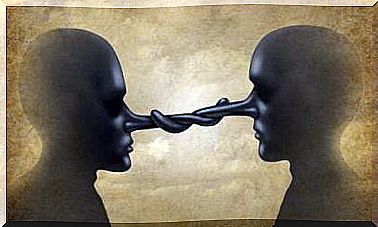“I’m Sorry “: When He’s Not Sincere
Sometimes the two words “I’m sorry” hide false intentions. But we accept them because we need to trust, because it costs too much to admit that that person who is so important to us is deceiving us. For some, apologizing is easy and those who play with our feelings do not hesitate to use this possibility.
Nobody taught us to “decode” the excuses, to understand if they are sincere or, on the contrary, if they hide an attempt at manipulation. This is because we have been raised to apologize, as the basis of social relationships and kindness.
When this gesture is sincere, it allows relationships and misunderstandings to be repaired, fostering a more respectful and authentic bond. How can we not trust those who ask for our forgiveness?
And above all, how can we doubt when our partner or a longtime friend asks us? We generally do not hesitate. We do not doubt, we take the intention, the words, the gestures and the attitude as good.
If, on the one hand, we must not be obsessively suspicious, on the other hand it is also good not to take these elements for granted. The emotions of others must reveal sincerity and not the attempt at manipulation.
Decoding another person’s intentions is not easy, but some signs can make this task easier for us. We talk about it in detail in the following lines.
Apologizing: Sometimes it’s a way to manipulate
When the apology is not sincere, we can consider it an attempt at manipulation. Alexander Pope said that to err is human and to forgive is divine. But the famous English poet did not consider a small aspect: sometimes the mistake is precisely to forgive those who do not deserve it.
But why lie? Why do some people always have the word “sorry” in their mouth and go out of their way to appear credible? Karina Schumann, a professor of psychology at the University of Pittsburgh, conducted an interesting study on the psychological mechanism behind the apology.
First, the psychologist and her team confirmed that not all of us are inclined to apologize. But among those who do, a small percentage do not feel they need to repair the offense or worry too much. This would be one of the causes for lying.
Victimization and the search for forgiveness
“Sorry, I don’t know what’s happening to me, but lately I’m only doing damage. I am a disaster and I don’t know how to be without you ”. “I’m really sorry, I did it again, I’m hopeless; the problem is that my head is in a thousand things, but you know how important you are to me ”.
Have you noticed that these words do not refer to the gesture committed, the error, the offense? The focus is on those who ask for forgiveness, on those who are making use of emotional manipulation by juggling love and victimhood in order to touch the other person’s strings . It is a visibly misleading and double-edged strategy.
I’m sorry, but it’s your fault
Sometimes the shadow of the accusation appears behind the apology. These are negative situations typical of dyadic relationships between couples or close family members.
An example is when an important person tells us “I’m sorry I offended you, but this would not have happened if you …” or “I apologize, but you must also understand that if you behave this way, I react like that, you look for it” . Beware of these situations: they are risky and hide an attempt at accusatory manipulation.
The repeat offender and the doormat effect
Some people have an “I’m sorry” always ready. They are relapses, they always fall into the same mistake over and over again; this is because in reality they are indifferent, because they know that it is enough to pronounce these two words with kindness and subtle charm, to be forgiven as often as they want.
The counterpart to this toxic behavior is the so-called “doormat effect”. This term refers to those who forgive once and again as well, because they live a relationship of dependence; because he fears losing the person he loves deeply, even if he is punctually hurt.
Does loving mean never having to say I’m sorry?
This saying spread thanks to the movie Love Story . This notoriety has given it a validity as dangerous as it is false.
A staple of relationships, be they sentimental, friendship or any other kind, is the sincere gesture of apologizing for any behavior, mistake, lie, carelessness or offense that has hurt the other person.
The expressed (and naturally sincere) willingness to repair any wound caused to the other, no matter how small, is essential in any bond. But, as we have emphasized throughout the article, the intention must be genuine and sincere. Let’s make sure, therefore, that this is the case.









